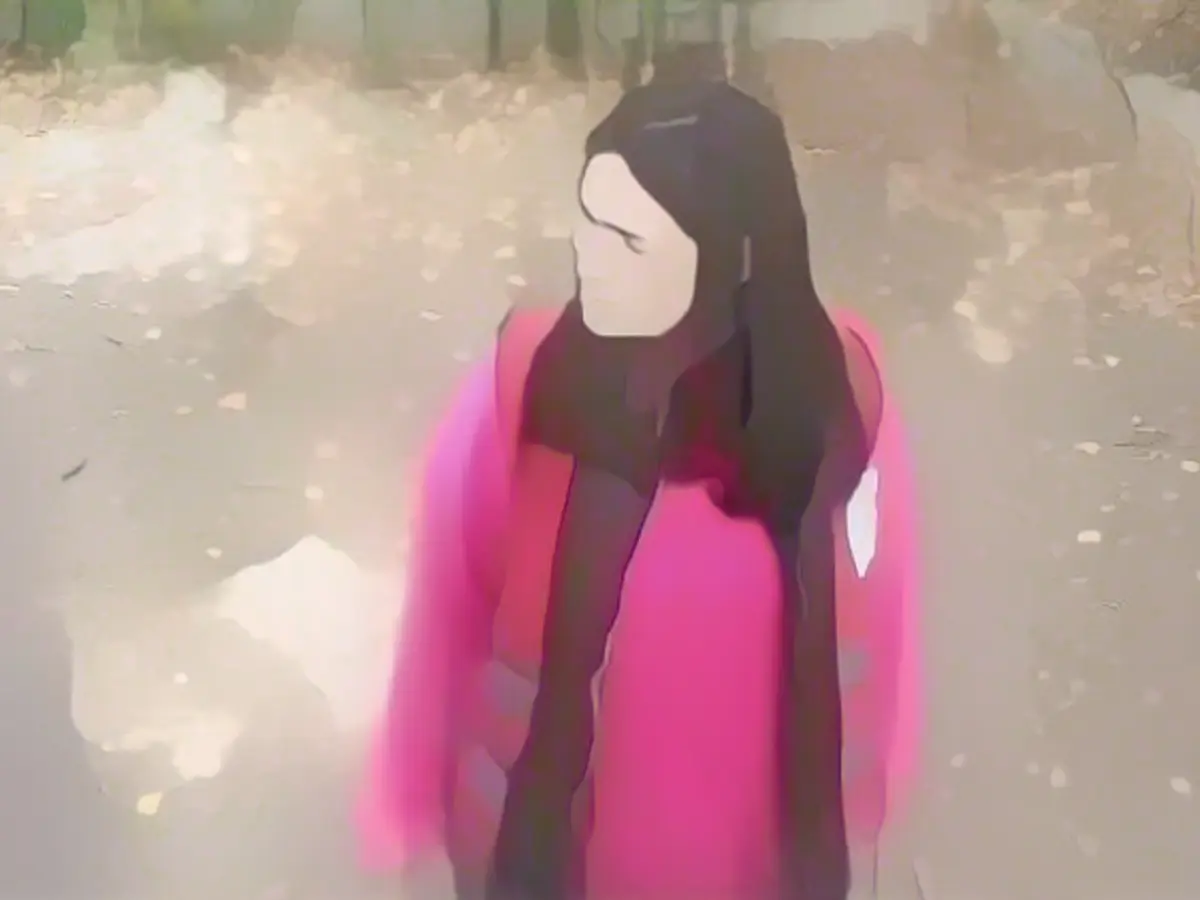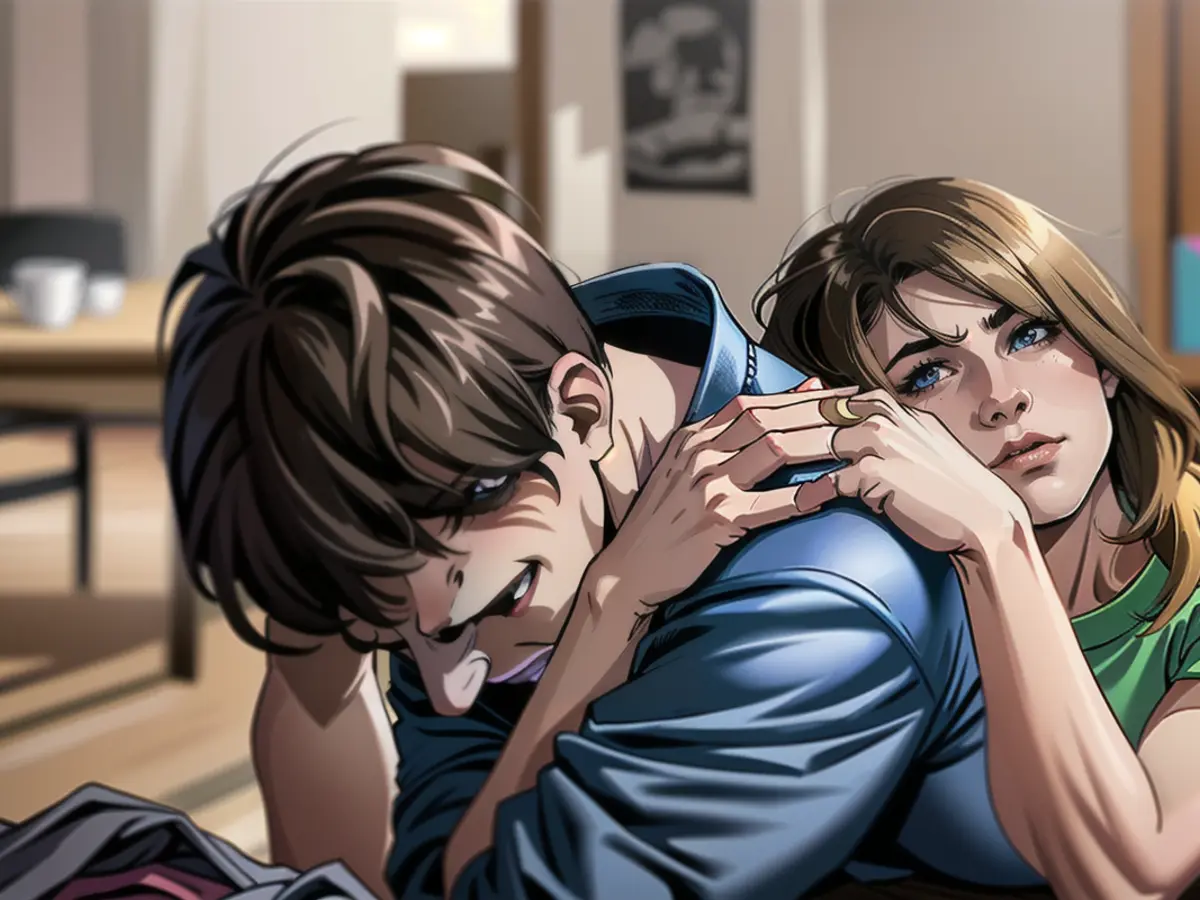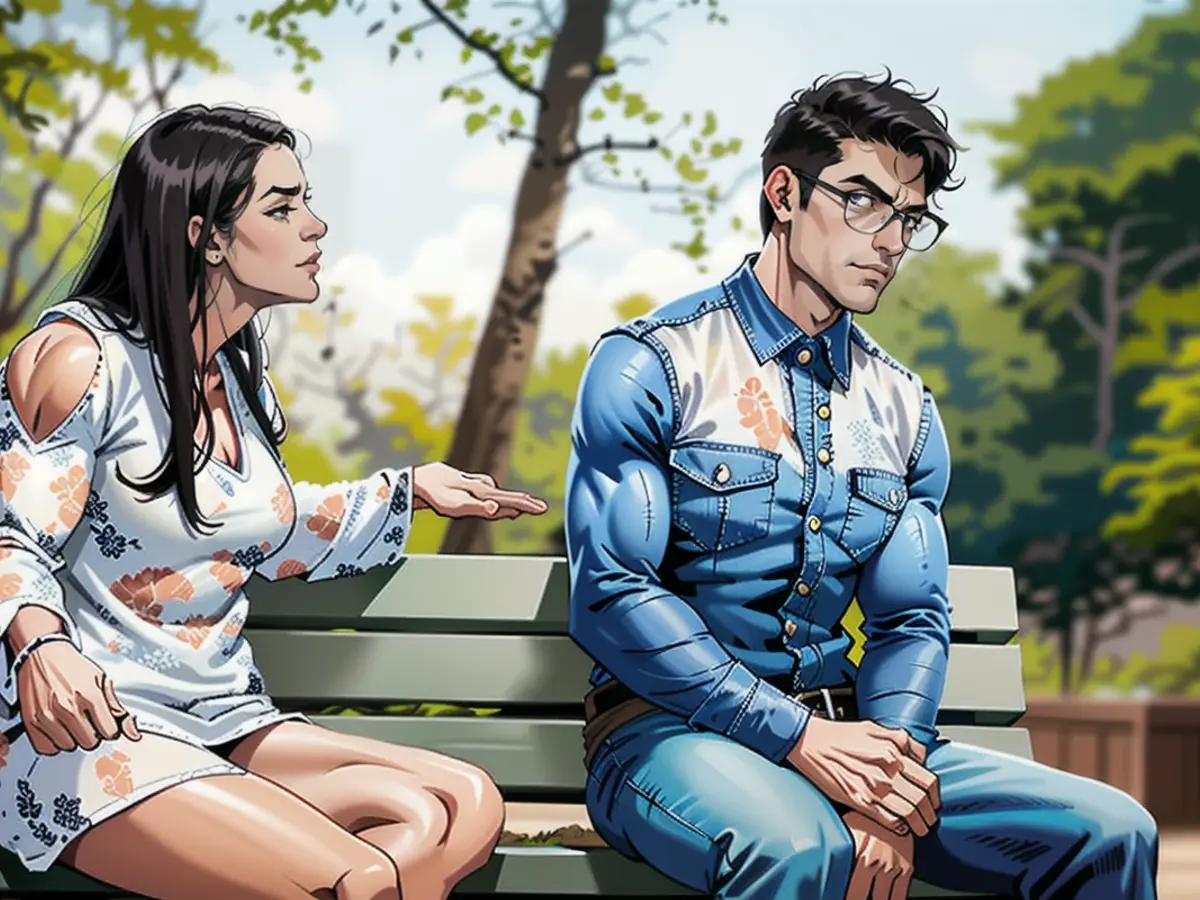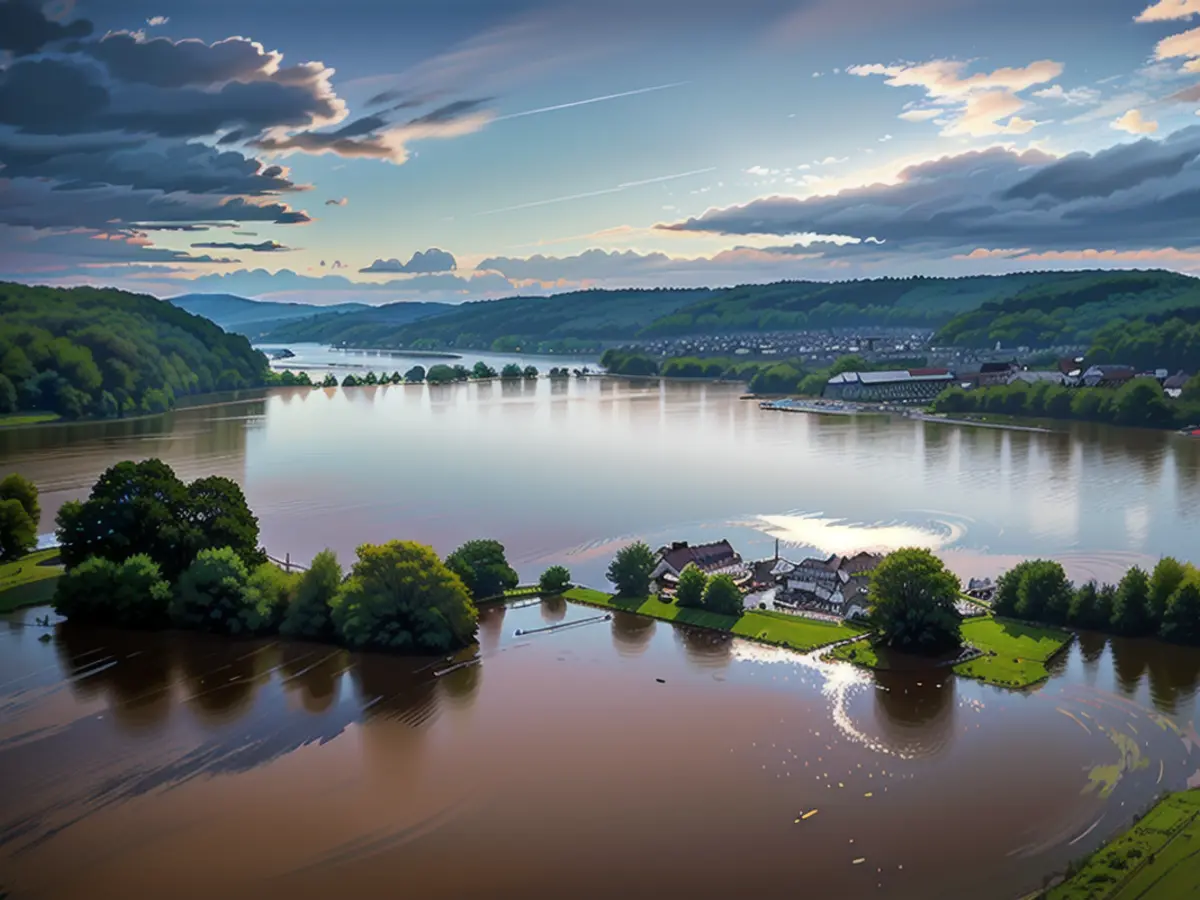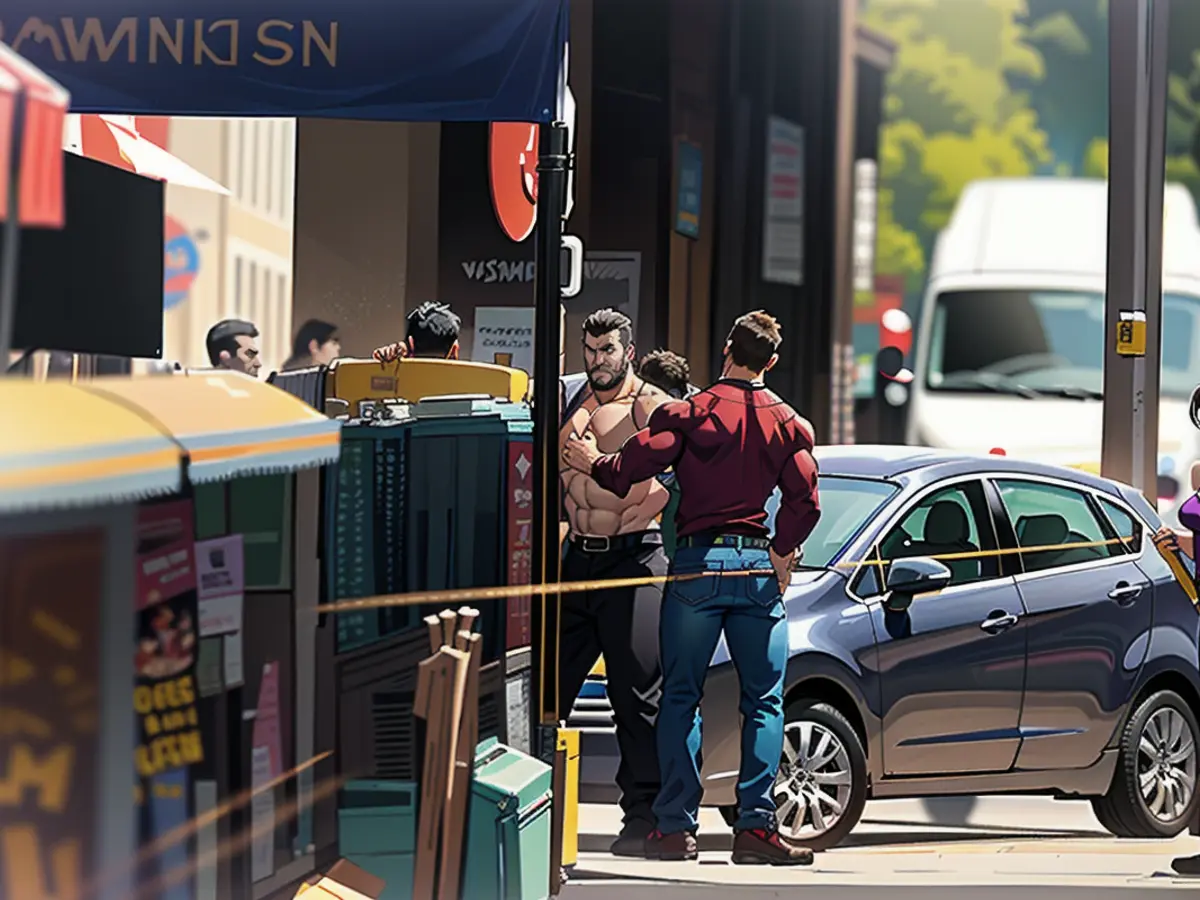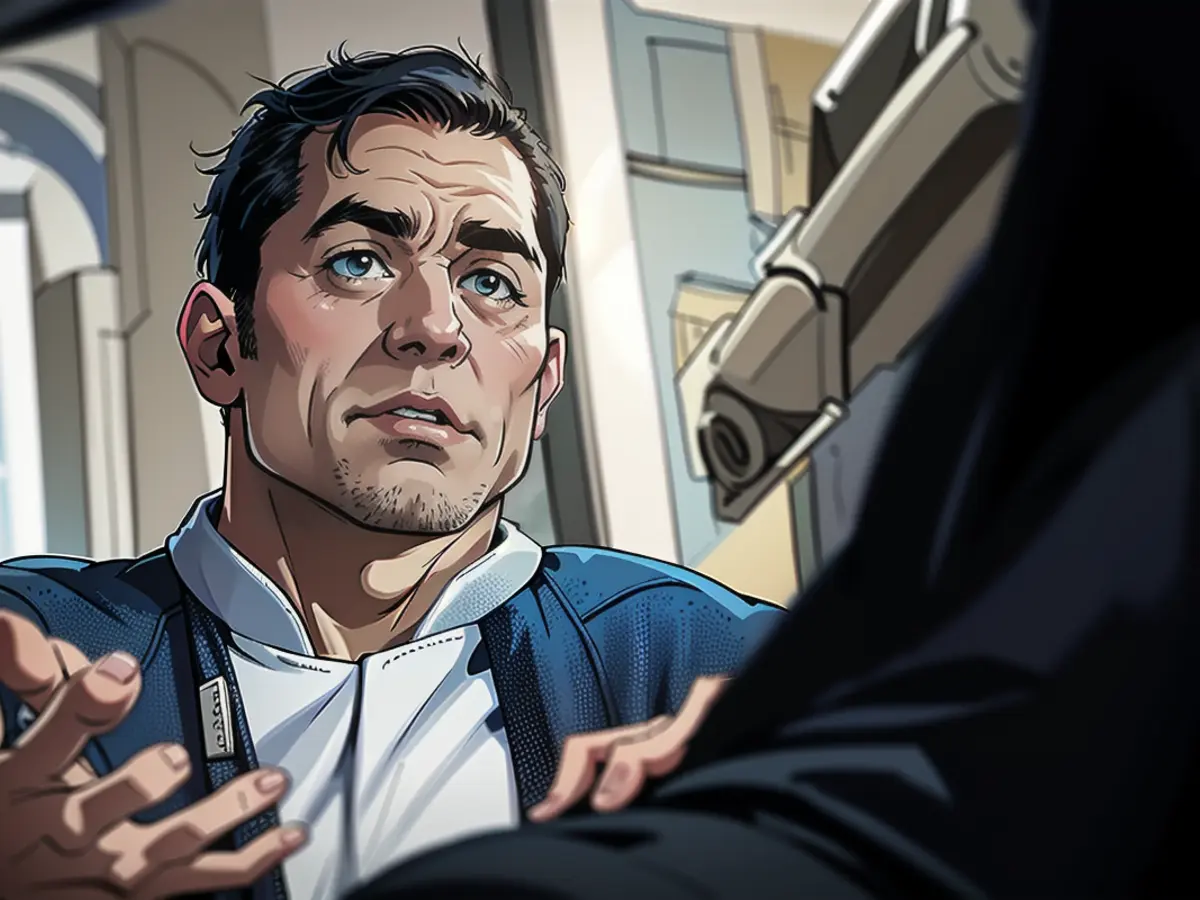Is there luck in misfortune on the run?
Can we be happy when people flee their homes? Can we be happy when a weeping father hugs his daughter without knowing whether he will ever see her again? Our author thinks so: Yes. After a two-month break, thanks to "Be an Angel", an evacuation bus finally set off again from Ukraine to Germany.
So, can we be happy about this? Yes, you can. For every single one of those 55 people who set off on a journey to peace on Sunday morning. On March 4, 2022, we set out to enable Ukrainians to flee to Germany. Since then, the association and the entire team have developed into a special kind of travel agency. The logistics behind a bus evacuation are nerve-wracking - and this time was no exception. The first step is the cruelest: we have to choose who can come with us from the current list of 360 people, mostly women and mothers, who want to be evacuated from frontline areas. Oh yes: "want to be evacuated"? No, they have to.
One option would be to flee within Ukraine. To areas that are reasonably safe. Because we all know that there is no safe place in Ukraine. The big cities are regularly attacked. And even in the countryside you are not safe from rockets. Rural regions that were under Russian occupation are particularly affected. When driving there, I was almost forcibly prevented from getting out of the car: "There are mines everywhere. Go right behind us!" I am almost shouted at. It's a bit safer to follow the locals, the mangled animal carcasses on the paths and in the fields speak their own language. One centimeter to the right and it could be over forever. It is precisely from these areas that the people who have now fled to Odessa in the first step come. And if you know the living conditions of the people who have fled within Ukraine, then you know that it is not really an option.
Halfway safe from bombs
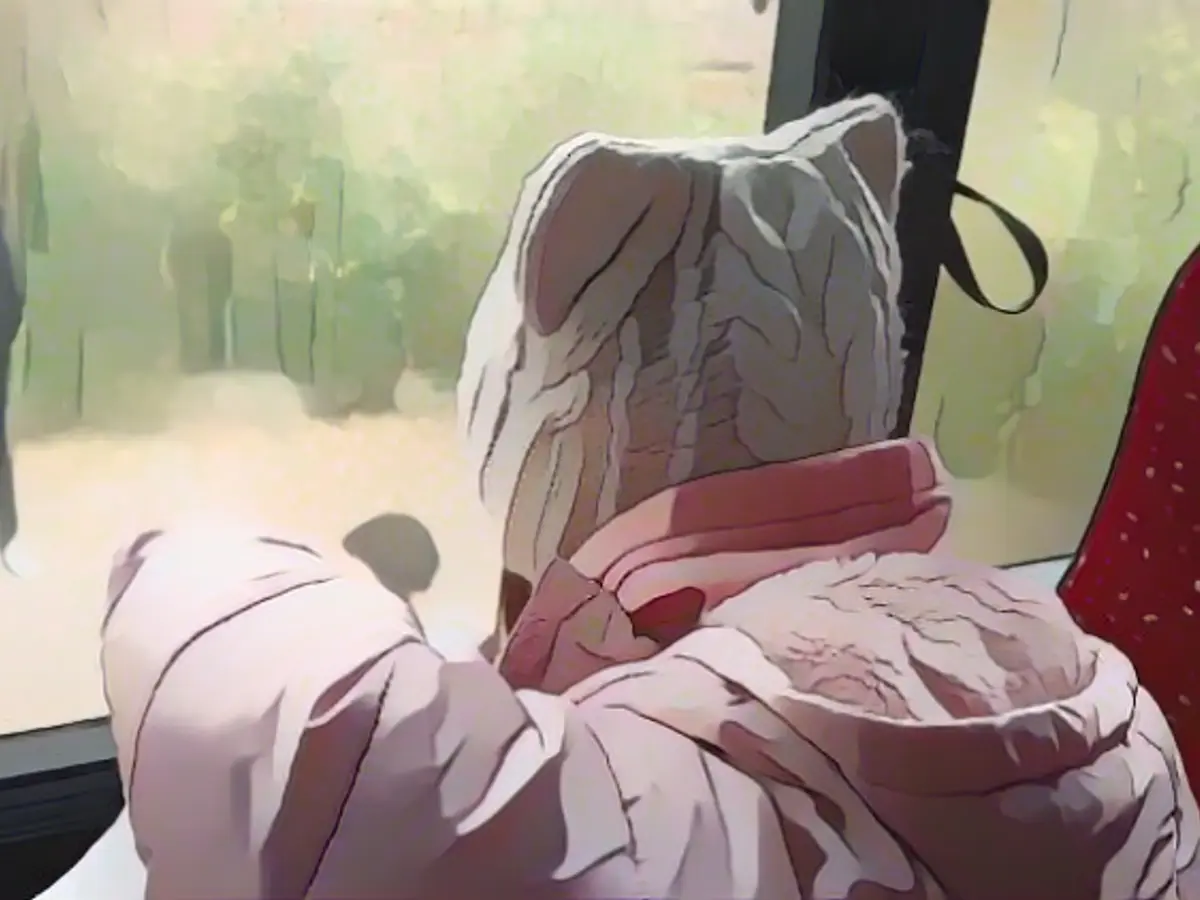
A visit to a basement apartment without a bathroom: the accommodation for families from the frontline areas is in the basement. The basement stairs lead into a narrow, small hallway from which three rooms lead off. The light in the rooms comes in through a hatch and you can see the feet of passers-by walking past the house. Three bunk beds for six people in each room. In fact, at least ten people sleep in each room. Mothers share a bed with their small children. Vitali set up the emergency shelter. He is actually a restaurateur. It depends on people like him whether refugees can find shelter anywhere at all. If you have no relatives in big cities, if you have no friends who will take you in, you're out of luck. There are hardly any jobs left to earn a living. Inflation is shooting through the roof. Only very few people can afford something like going out to a restaurant every day. At least for a while, the basement in Odessa was reasonably safe from bomb attacks. That has also changed.
For a year and a half, there were regular attacks and air raids, but the missiles generally only hit the port, the airport and the outskirts. When the grain agreement, which supplied the rest of the world with food from the port of Odessa, was unilaterally terminated by Russia, Russian warfare also changed. The grain agreement expired, and twelve hours later a cathedral in downtown Odessa was reduced to rubble. Two buildings were destroyed in the side street of the apartment I lived in. It was all over the press. Nothing has changed in the warfare.
House of Hope
Last week, a high-rise hotel building at the end of the Potemkin Stairs was hit. So what to do in the basement in Odessa? Find a way to safety. There are virtually no evacuation programs left in the south of Ukraine. The financial possibilities of people who want to flee abroad are, to put it mildly, limited.
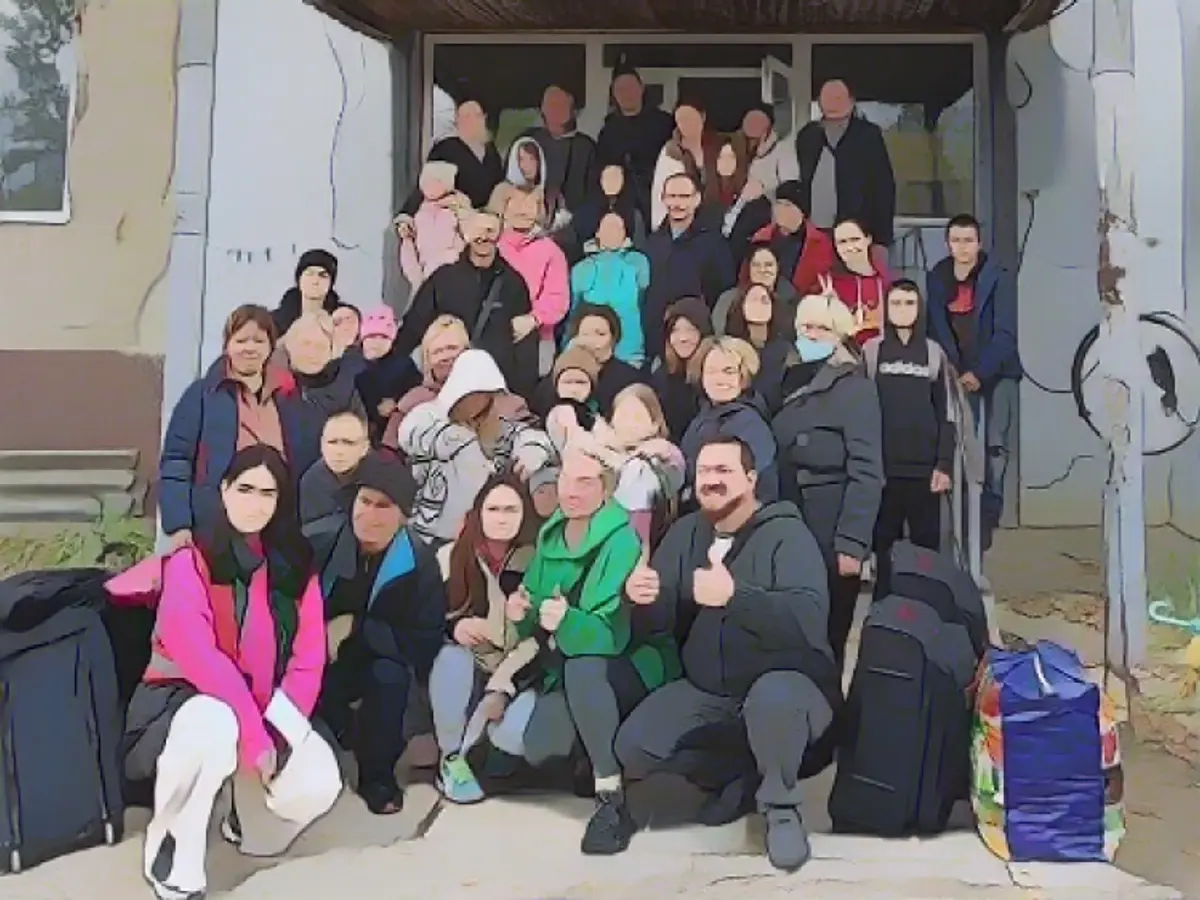
Although you could get on a minibus to Moldova and from there on to the EU. However, this is a huge step, and with small children and a few belongings for mothers, a real Herculean task. Especially as there is very limited accommodation available for refugee Ukrainian women in Moldova. One of these shelters is the House of Hope: 160 people, mostly women and children, currently live there. The whole thing is financed by Konvoi gGmbH - a German gGmbH that is active in Moldova. And their team in Moldova is more than happy when a bus drives up to pick up residents.
So the first step was to bring the people from Odessa to Moldova. They then spent the night at the House of Hope. And together with a few others who have been there for some time, the journey left for Munich on Sunday morning. This once again required our commitment.
Until the middle of last year, there was the so-called Königstein Key. All federal states reported their capacities for taking in refugees to the Federal Office for Migration. The federal states did this voluntarily. Bavaria was the first to drop out. Other federal states followed. For us, this means that we can no longer simply ask the BamF where we can take people. We have to check individually in each federal state to see whether there is still any reception capacity at all. In this case, it was Munich that agreed to take in 55 people.
Chance of a career?
Migration is currently a hotly debated topic. From our point of view, it is not very solution-oriented and unfortunately also based on the wrong assumptions on the part of the political players. According to a survey by the Federal Office for Migration described above, 78% of Ukrainian women want to return home as soon as possible. They see Germany as a stopover until the war is won.
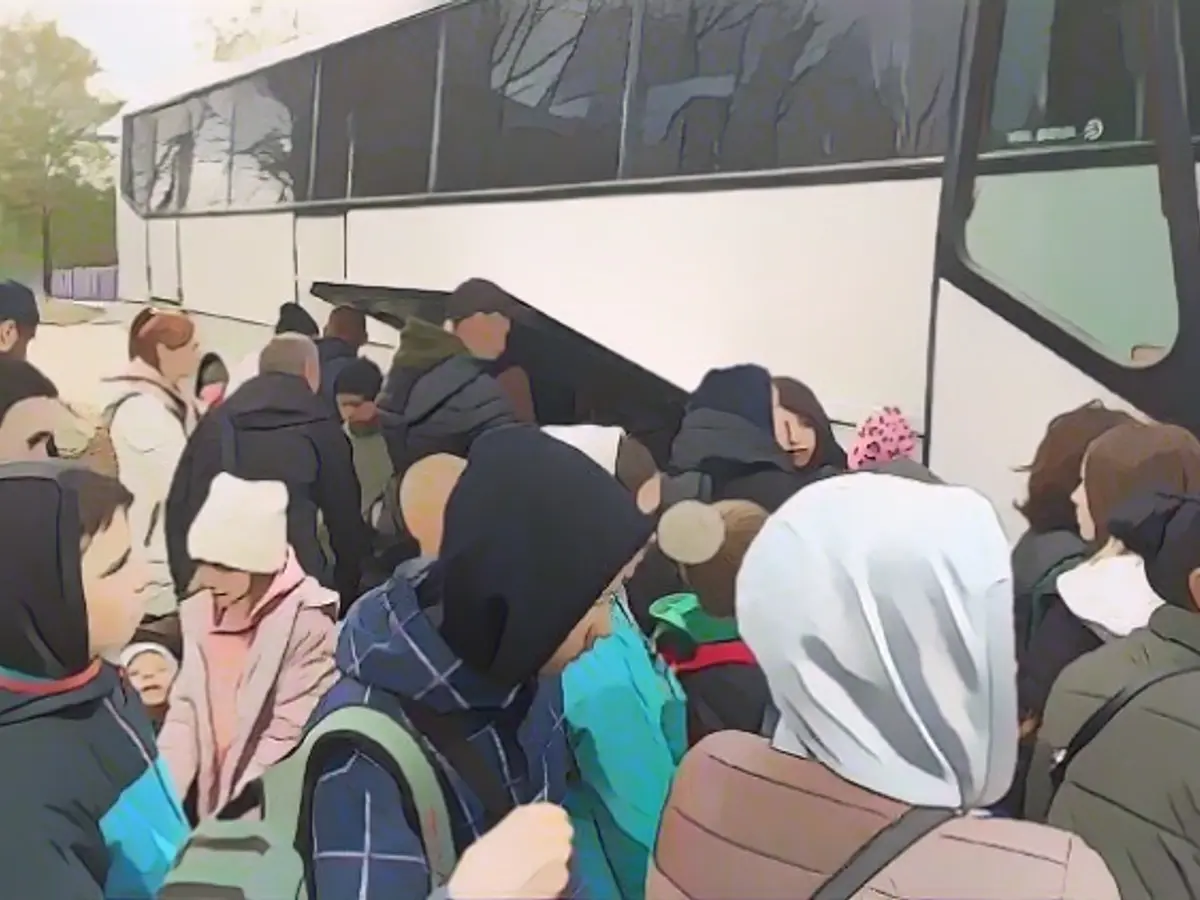
It goes without saying that someone who does not want to settle here has little interest in starting a professional career. It is well known that single mothers with inadequate childcare generally have little chance of a career, even as Germans. So how is a Ukrainian mother who arrives in a country whose language she generally does not speak supposed to start a career here? Answer: not at all!
Those who build a life here usually come from Arab or African countries. The so-called "lane change law" would apply to these people. In summary, this means that if someone has training or work, they can get out of the asylum procedure. Little of this is actually implemented. On the contrary, work bans for people in the asylum procedure are prescribed by law. No matter how long the asylum procedure takes.
We know of cases in which a residence permit was issued after seven years. So the person was in Germany legally for seven years, but was not allowed to work. A small calculation example: this usually costs the taxpayer 2500 euros per month. Twelve months times seven years: 210,000 euros.
Svetlana, more than a babushka
But back to the actual topic. And why we are happy: to date, we have demonstrably evacuated over 19,000 people. A very abstract number, which you can't really imagine. Hence the story of one of the travelers on the bus, Svetlana, grandmother of two adorable children: Ivan, whose dream is to become a boxer, and Hanna. The children's father left their mother before they were born. The mother was deprived of her parental rights - for good reason. The children were then placed in an orphanage. Grandma Svetlana spent months trying to get them out of there.
And she had just lost her own husband in the war. He was killed. She slept near the window of the orphanage for days just to see her grandchildren. She eventually managed to get custody of the children, but three days after the three of them moved in together, a bomb hit their house. Her grandchildren are Svetlana's reason to keep going. She opted for a fresh start and for a future for her grandchildren - that's why Svetlana chose Germany.
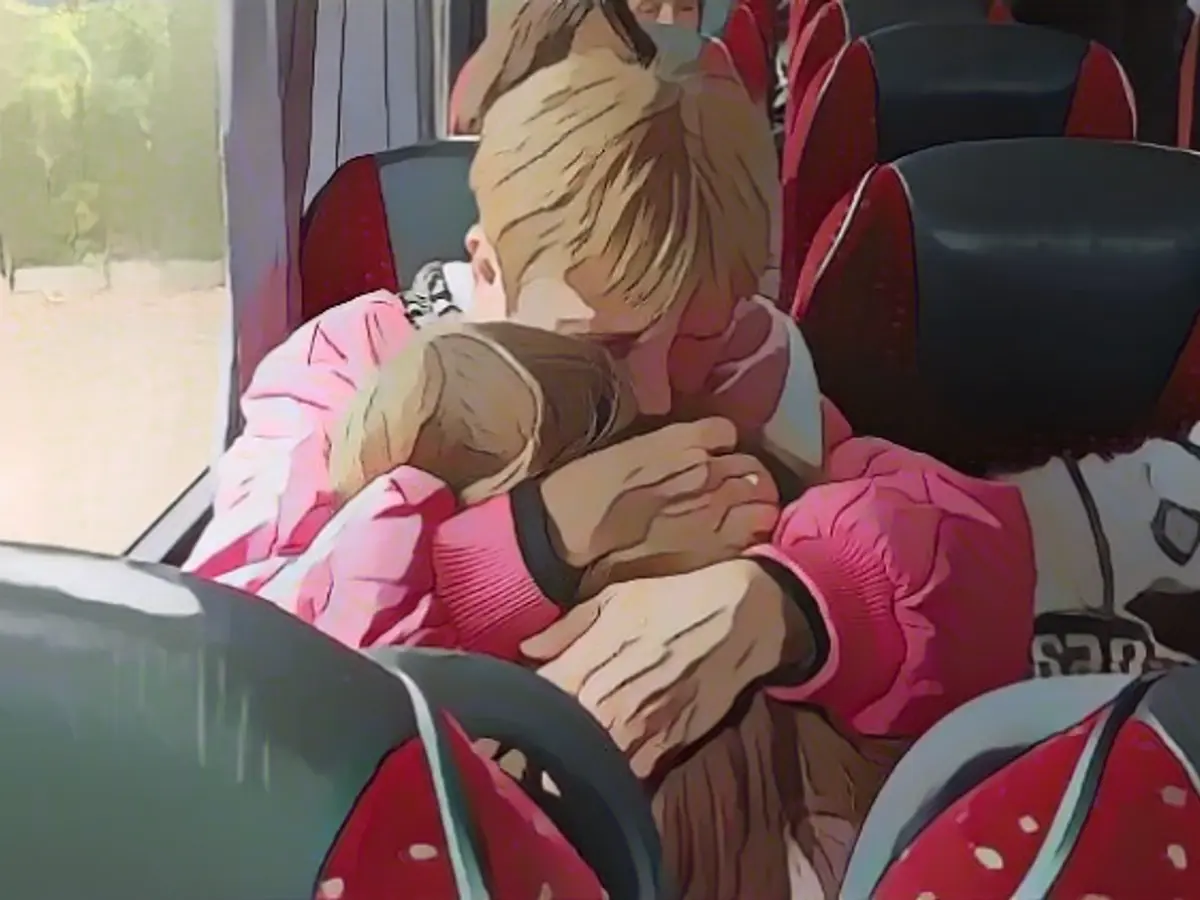
An individual fate. Or is it? Everyone who manages to flee the war brings their own story with them. These stories, these biographies are very, very different. Some are comprehensible to us, others pose big questions. Why someone did not make a different decision in their life is one. It's not up to us to judge, that would be presumptuous. It is up to us to give people hope that they can take their lives back into their own hands. And even if Germany is just a stopover for a hopefully soon peaceful Ukraine as a home.
Yes, migration to Germany is an incredibly challenging issue. Yes, it poses a number of challenges for Germany and therefore for each and every one of us. In all honesty, this is nothing compared to what people had to go through to arrive here in the first place. Yes, we can allow ourselves to demand that people who arrive here come to terms with our homeland. And we can allow ourselves to expect everyone who arrives here to integrate into Germany to the best of their ability - at best to contribute something. What we must not allow ourselves to do is to give people the opportunity to be safe. The reverse would be no different. Because the happiness of living in peace is a fragile one.
Source: www.ntv.de
